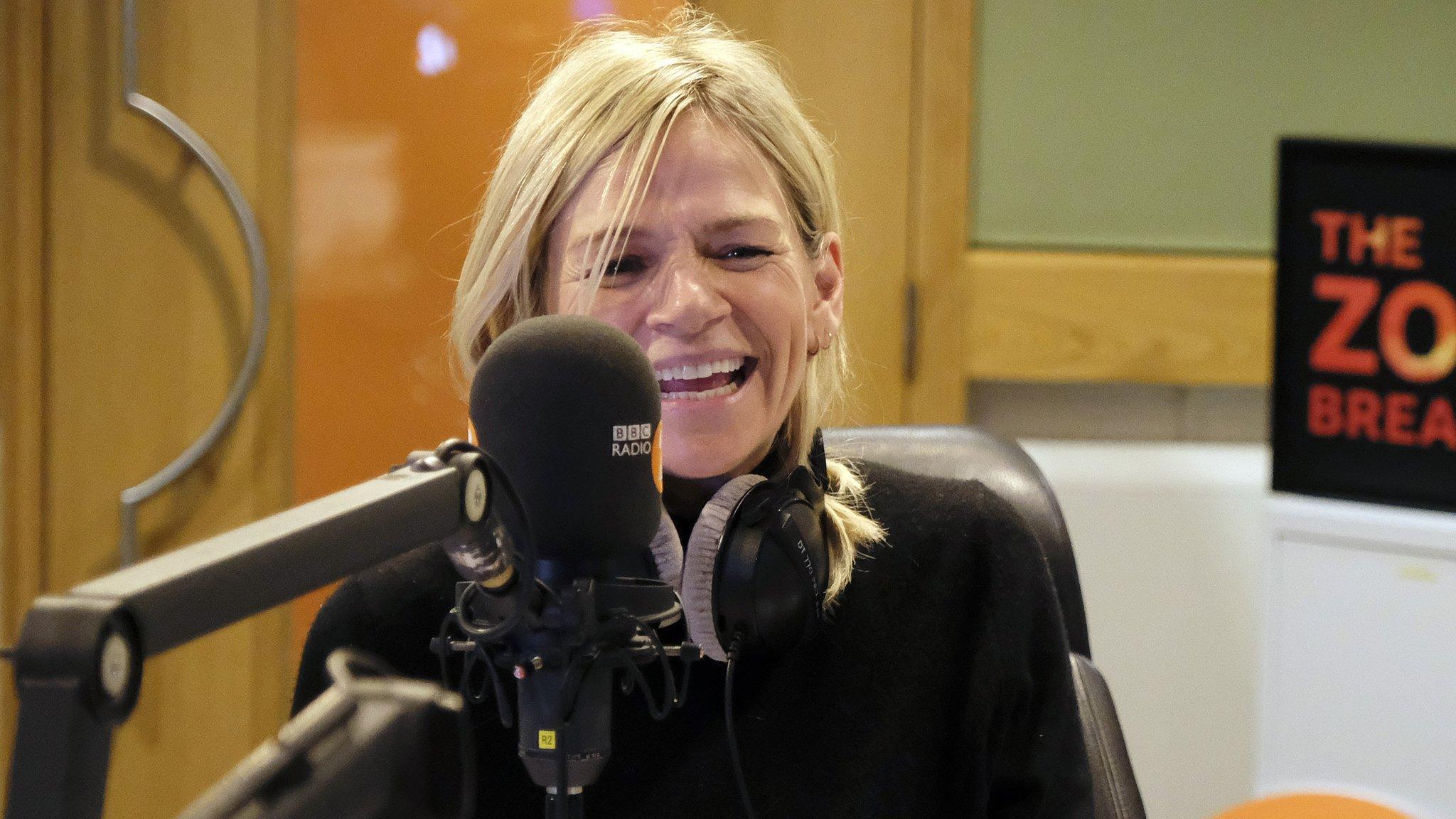Zoe Ball breakfast show sees listeners rise after six months of decline
- Published
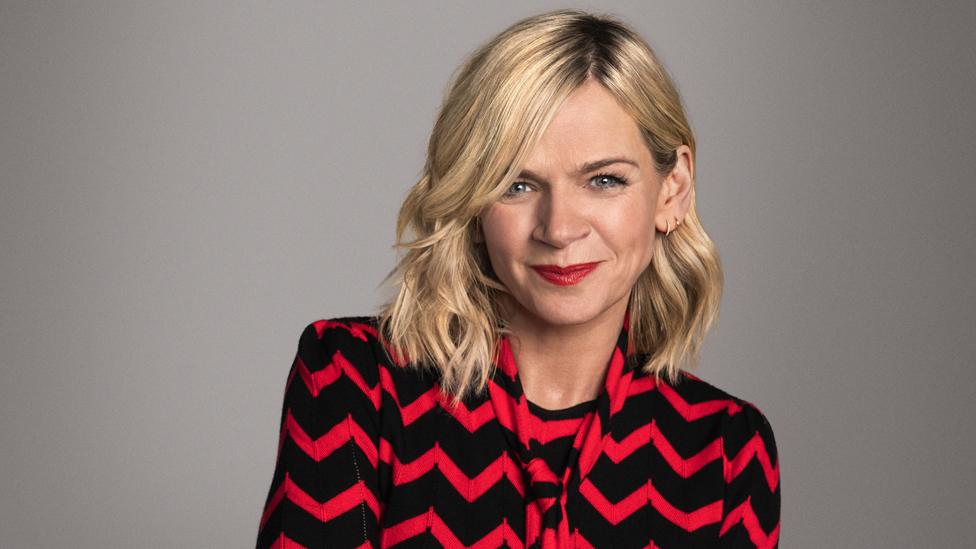
Zoe Ball began hosting Radio 2's breakfast show in January 2019
Zoe Ball has added 335,000 listeners to her BBC Radio 2 breakfast show, the latest industry figures reveal.
Data from industry body Rajar shows Ball's breakfast show attracted an average weekly audience of 8.24 million in the fourth quarter of 2019.
It is a reversal of fortunes for the programme, which lost 1.14m listeners over the previous two quarters.
The busy news agenda also prompted increases to programmes on Radio 4, LBC and 5 Live.
The postponing of Brexit and the subsequent general election helped BBC Radio 4's Today programme rise to an average weekly audience of 7.17 million listeners.
That is 568,000 more than the previous quarter's 6.6 million, which was its lowest audience in 10 years.
Last week it was announced that Sarah Sands is to stand down as the programme's editor after three years in the role.
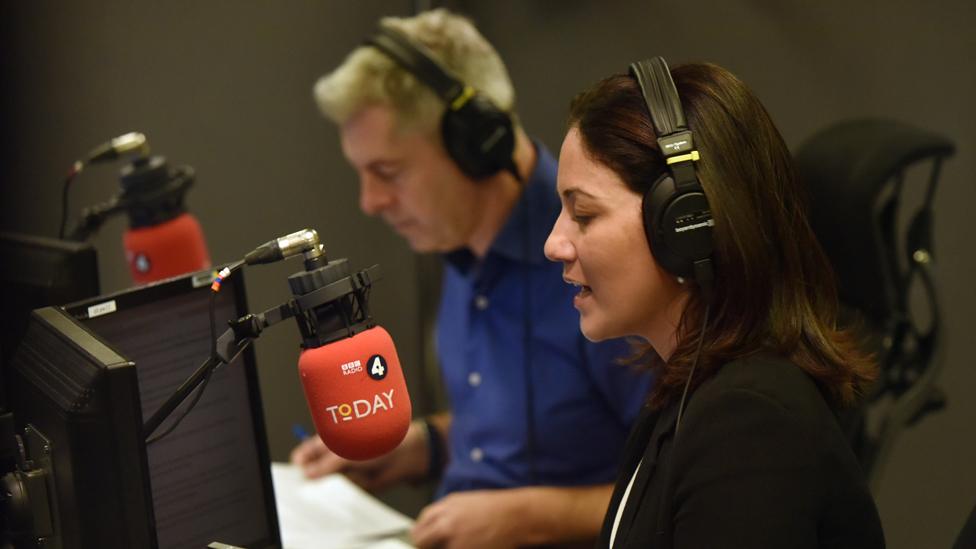
Justin Webb and Mishal Husain are among the presenters on Radio 4 Today
BBC Radio 5 Live's breakfast show, fronted by Nicky Campbell and Rachel Burden, also increased by 264,000 listeners to reach an average weekly audience of 2.22 million.
News station LBC, which stands for Leading Britain's Conversation, also recorded record figures both for the station overall (2.7 million listeners) and Nick Ferrari's breakfast show (which reached a consolidated audience of 1.5 million nationally).
Ball's predecessor on Radio 2, Chris Evans, added 79,000 listeners on the previous quarter to his new breakfast show on Virgin Radio.
Breakfast shows on Kiss, Radio 3, Absolute Radio and Classic FM also saw an increase on their weekly audience between October and December last year.
The buoyant quarter for breakfast shows followed a typically weak summer. Morning programmes often lose listeners in the third quarter of the year as a result of school holidays.
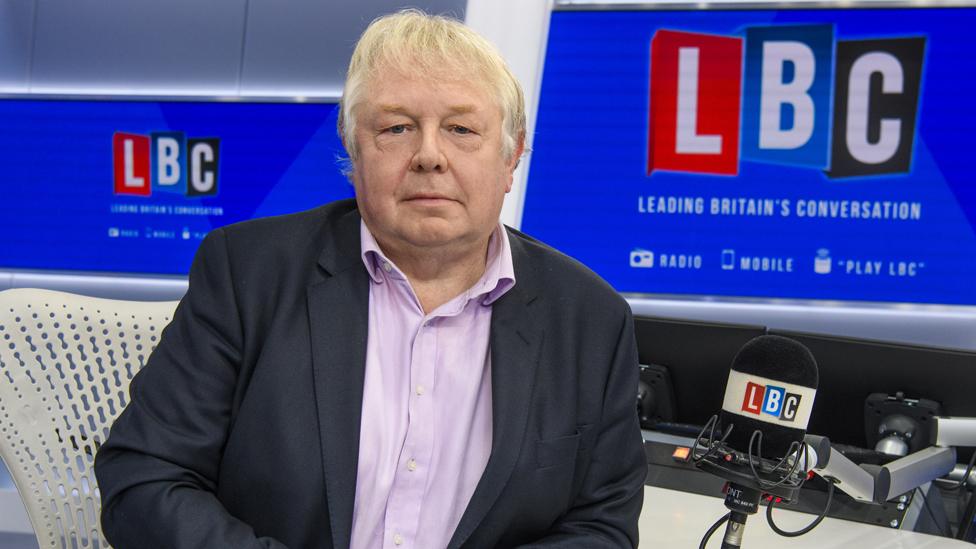
Nick Ferrari's LBC show reached a new record audience nationally despite losing listeners in London
However, several music-based breakfast shows lost listeners in the last quarter of last year.
Greg James on BBC Radio 1 lost 237,000 listeners, bringing his average weekly audience to 4.81 million.
There were also losses for Jamie Theakston and Amanda Holden on Heart, who went down by 272,000 to 4.29 million. National audiences for Magic, Radio X and Capital also fell.
The BBC welcomed what it described as "a stable quarter" for the corporation's radio output that saw Radio 3 reach its biggest overall audience since 2016, and BBC 6Music reclaim its title as the biggest digital-only station, with 2.49 million weekly listeners.
James Purnell, director of BBC radio and education, said the corporation's speech stations - Radio 4 Extra among them - had enjoyed "some strong numbers".
"The latest figures show some of the challenges we face across the radio industry with retaining a live listening habit amongst young people, whose audio consumption is rapidly changing," he said.
Purnell also pointed to the record number of plays - more than 100 million - of on demand content on the BBC Sounds app as proof of "the increasing popularity of our radio programmes outside of our linear schedules".

Follow us on Facebook, external, or on Twitter @BBCNewsEnts, external. If you have a story suggestion email entertainment.news@bbc.co.uk, external.
- Published24 October 2019
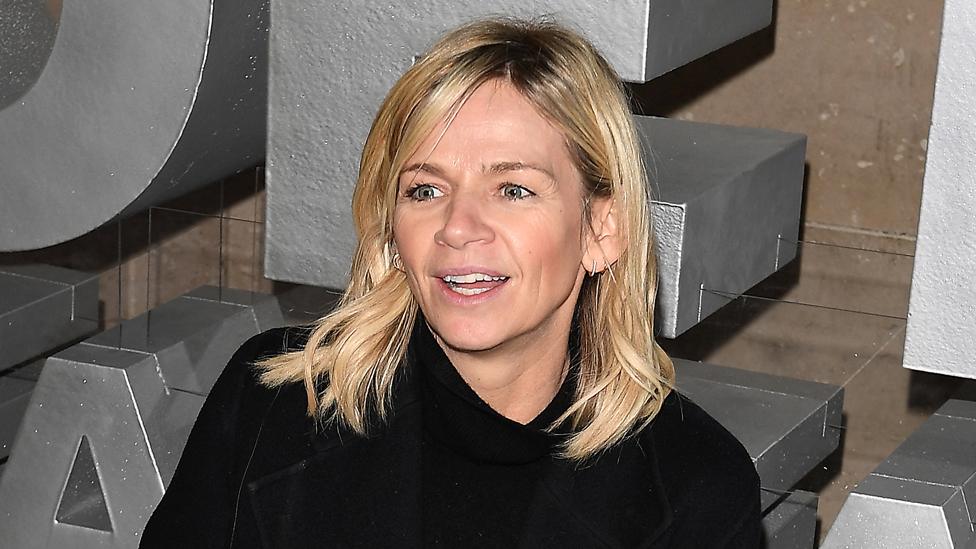
- Published1 August 2019
